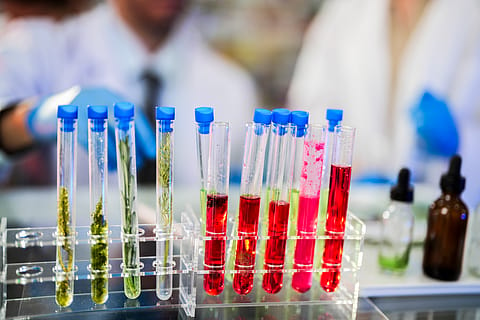India’s bio-economy soars to $165.7 billion in 2024, doubling in four years
The growth has been driven by advancements in biotechnology, agricultural innovation, bio-manufacturing, and healthcare, the report notes.

India’s bio-economy registered a 9.75% growth, reaching $165.7 billion in 2024, compared to $151.1 billion the previous year. This marks a significant rise from $86 billion in 2020, according to the annual India Bio-Economy Report (IBER) published by the Biotechnology Industry Research Assistance Council (BIRAC), a government body. The growth has been driven by advancements in biotechnology, agricultural innovation, bio-manufacturing, and healthcare, the report notes.
IBER highlights that the bio-industrial and bio-pharma segments were the primary drivers of growth in 2024, collectively accounting for nearly 82.4% of the sector’s value. The bio-industrial segment contributed $78.2 billion, while bio-pharma stood at $58.4 billion. The report also pointed out that although the bio-agricultural segment and bio-IT/research services held smaller shares of 8.1% and 9.4% respectively, they remain crucial for fostering innovation and addressing key challenges in agriculture and healthcare.
The bio-industrial segment encompasses bio-based chemicals and products developed using enzymes, biosynthetic processes, and recombinant DNA technology. It includes biofuels, bioplastics, biogas, and enzymatic applications across industries ranging from beverages to detergents. The bio-pharma and bio-medical sectors focus on pharmaceuticals, medical devices, diagnostics, and lab-grown organoids, with advancements in cancer immunotherapy, gene editing, precision medicine, and biologics. Bio-research and bio-IT segments cover contract research, clinical trials, biotech software and databases, specialized equipment, and bioscience education services. Meanwhile, the bio-agriculture sub-segment includes genetically modified crops, precision agriculture, and bio-based products, with Bt cotton serving as a key example of biotech’s role in improving agricultural yields and sustainability.
“Biotechnology is no longer just a sector—it is a pillar of India’s economic growth. The bio-economy now contributes 4.25% to the national GDP ($3.89 trillion). India’s unique challenges require a tailored approach, and BIRAC is playing a crucial role in propelling the country’s biotech sector towards a brighter future,” said Dr. Rajesh S. Gokhale, Secretary, DBT, and Chairman, BIRAC.
According to the report, Maharashtra led India’s bio-economy with a value of $35.45 billion, representing 21.4% of the total bio-economy. Karnataka ($32.37 billion), Telangana ($19.9 billion), Gujarat ($12.9 billion), Uttar Pradesh ($11.3 billion), Andhra Pradesh ($11.1 billion), and Tamil Nadu ($9.9 billion) were also major contributors.
In 2024, 1,544 new biotech startups were incorporated across the country, bringing the total number of biotech startups in India to 10,075.